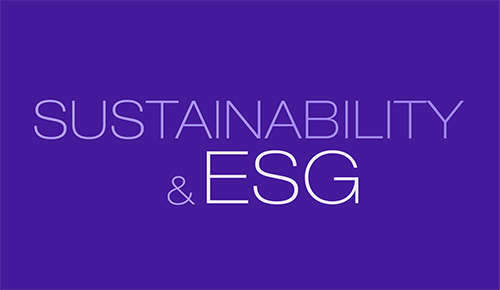As businesses increasingly prioritize environmental, social, and governance (ESG) criteria, professionals with expertise in sustainability are in high demand. The Certificate of Advanced Studies (CAS) in Sustainability & ESG is designed to provide you with the essential knowledge and skills to lead sustainability initiatives and integrate ESG principles into business strategies. This program is highly relevant for individuals aiming to drive positive environmental and social impact while ensuring robust governance practices. By enrolling in this CAS, you will gain the expertise needed to develop sustainable business practices, manage ESG risks, and contribute to the long-term success and responsibility of your organization.
- ESG Reporting & Management (5 CP)
- Sustainable Finance (5 CP)
- Green & Sustainable Business Models (5 CP)
- Strategic Transformation Management for Regenerative & Digital Business (5 CP)
The CAS continuing education certificates are modularized and are based on the European Credit Transfer System (ECTS) to confirm academic achievements. In the "CAS in Sustainability & ESG" Certificate Program, participants can choose 3 out of 4 courses to earn 15 credits. The CAS is confirmed by GBS with a certificate upon successful completion. f you’re a GBS or Goethe University alumni, explore our attractive alumni discount options.
Language
Price
Degree
Location
For more information about the schedule, format, and content, please visit the individual course pages. To gain a clear understanding of the certificate's concept and structure, you can also watch our short CAS overview video.
Filter by topic
Select courses
To apply, first choose your courses and create your schedule using the "Create schedule" function on this page. If the selected courses are available, you can then submit your documents through our Online Application Portal.
Applications are open for the upcoming intakes: apply by March 1, 2026, for the April 2026 intake, or by September 1, 2026, for the October 2026 intake.
The following admission requirements must be met to enroll in the CAS programs:
- A Bachelor's degree with 180 CP or equivalent
- Proof of at least one year of relevant professional experience after obtaining the first university degree
- English language skills at B2 level
We're here to support you every step of the way – whether by phone, Zoom, or in person at Campus Westend. To schedule an appointment, call +49 69 798 33501 or send an email to recruiting@gbs.uni-frankfurt.de. We look forward to guiding you through the application process and helping you reach your career goals.




